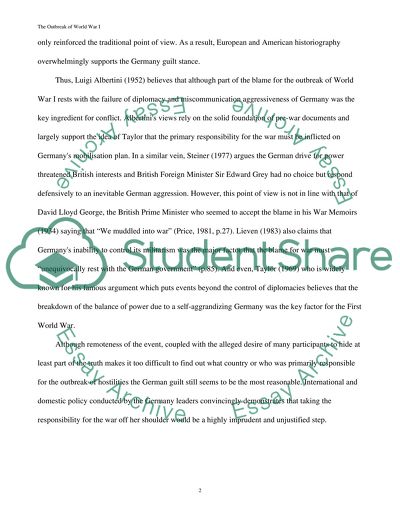Cite this document
(“The Outbreak of World War I Essay Example | Topics and Well Written Essays - 2000 words”, n.d.)
Retrieved from https://studentshare.org/history/1517534-the-outbreak-of-world-war-i
Retrieved from https://studentshare.org/history/1517534-the-outbreak-of-world-war-i
(The Outbreak of World War I Essay Example | Topics and Well Written Essays - 2000 Words)
https://studentshare.org/history/1517534-the-outbreak-of-world-war-i.
https://studentshare.org/history/1517534-the-outbreak-of-world-war-i.
“The Outbreak of World War I Essay Example | Topics and Well Written Essays - 2000 Words”, n.d. https://studentshare.org/history/1517534-the-outbreak-of-world-war-i.


